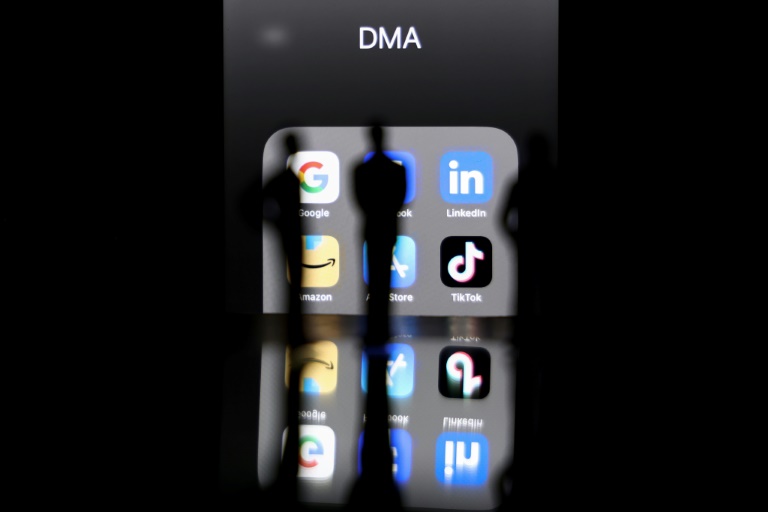
2024 will be a year of change for the world's largest technology companies. It bows to EU rules that come into effect next month, shaking up the way Europeans use hugely popular platforms from Google to Instagram.
The European Union has long had its sights set on big tech, seeking to rein in globally dominant companies like Apple, Google and Microsoft.
This landmark law, known as the Digital Markets Act (DMA), breaks new ground as it aims to prevent companies from becoming powerful enough to overtake their rivals, rather than acting after the fact. .
“This is a really large-scale intervention in a market that impacts people's lives every day,” said Fiona Scott-Morton, a senior researcher at the Bruegel think tank.
In September, the city of Brussels named six so-called “gatekeepers” facing tougher regulation: Google's Alphabet, Amazon, Apple, TikTok's parent company ByteDance, Meta, and Microsoft.
It features 22 “core” platform services from six major companies, including Amazon Marketplace, Apple's App Store, Facebook, Instagram, and Google's Chrome browser.
“The whole point of this law is to open up these platforms and make their interfaces widely accessible so they can compete,” Scott Morton told AFP.
The companies have until March 7 to comply with a flurry of changes announced since the beginning of the year, even as Apple, TikTok and Meta proceed to challenge various aspects of the law.
Scott Morton predicted that “we will be able to reap the benefits of these market openings fairly quickly.''
-Winds of change-
One of the biggest changes announced so far comes from Apple, which announced in January that it would allow alternative app stores on the iPhone for the first time.
The company reluctantly complies with this, while legally contesting that the app stores for all its products, including the iPhone, should be counted as one.
Google's EU users will see a banner asking if they want to keep Google services like YouTube and Chrome linked and allow data sharing.
Another big change is the selection screen. To counter the dominance of Google search, the EU requires companies to make it easy for users to choose their default search engine or browser.
Google has promised an overhaul of its search results page, adding more links to price comparison websites and removing some features such as Google Flights.
Microsoft also announced measures to comply, including requiring Windows users in the European Economic Area (EEA) to uninstall the Edge browser from their computers and eliminating pop-ups encouraging new users to try the interface. did.
The EEA includes the bloc plus Iceland, Liechtenstein, and Norway.
Advertising services by Amazon, Google and Meta will also have to adapt to the new rules, and Amazon detailed the changes to its advertising services last month, including providing more information on pricing.
Letting users decide how much data they want to share between the biggest companies' various platforms is one of the key changes the EU is seeking.
Meta announced last month that users in the EU, EEA, and Switzerland will be able to create a separate Facebook Messenger account if they don't want to link it to their Facebook account.
Individuals will also be able to access Facebook Marketplace and Facebook Games without using their primary account information.
At the same time, Meta is challenging the application of the law to Facebook's Messenger and Marketplace services.
Similarly, Chinese-owned TikTok, the only non-U.S. company on the EU's list, says it did not meet various criteria for the law to apply and was incorrectly designated.
– Apple's core issues –
Of all the giant companies it targets, DMA perhaps has the greatest potential to change Apple's closed ecosystem.
Apple has made no secret of its disdain for DMA, saying it creates privacy and security risks.
Within the industry, Apple has been accused of malicious behavior, including by Meta's Mark Zuckerberg, who said the changes would create an alternative app store on the iPhone. This suggests that it is no longer easy.
“Apple clearly has no intention of following the DMA,” said Rick VanMeter, executive director of the App Fairness Coalition, which has more than 70 members. The coalition has been pushing Apple to open its market for years.
“Apple is introducing new fees for direct downloads and payments that don't process anything, which is against the law,” he said.
Apple says the changes are DMA compliant.
One of the loudest critics was Daniel Ek, CEO of Spotify, which is part of the app coalition, saying the changes announced by Apple were a “new low” for the company. Ta.
Echoing a growing chorus among Apple's competitors, Spotify expressed hope that the DMA will end “Apple's unjust stifling of innovation under the guise of security protection.”
Raz/EC/Yado/Pound


